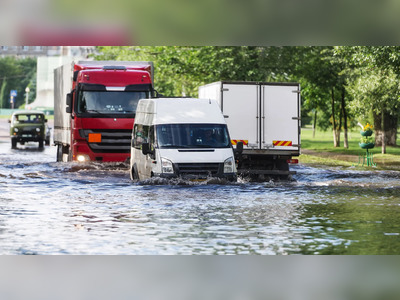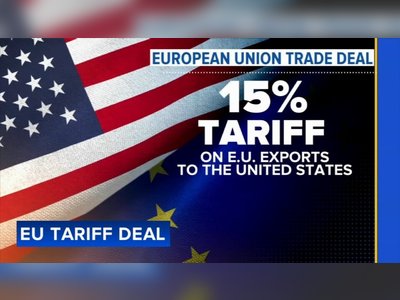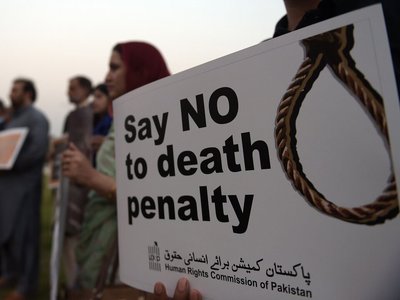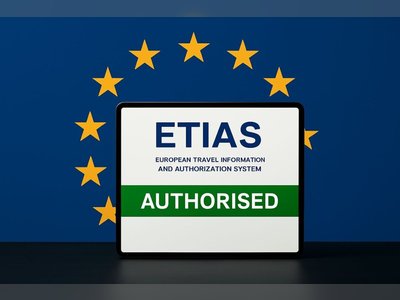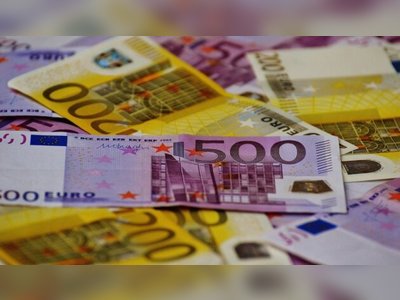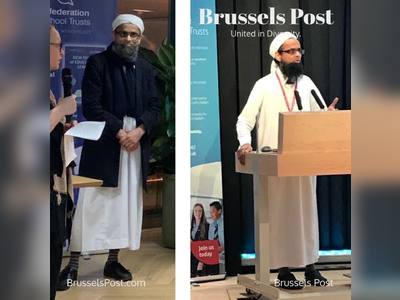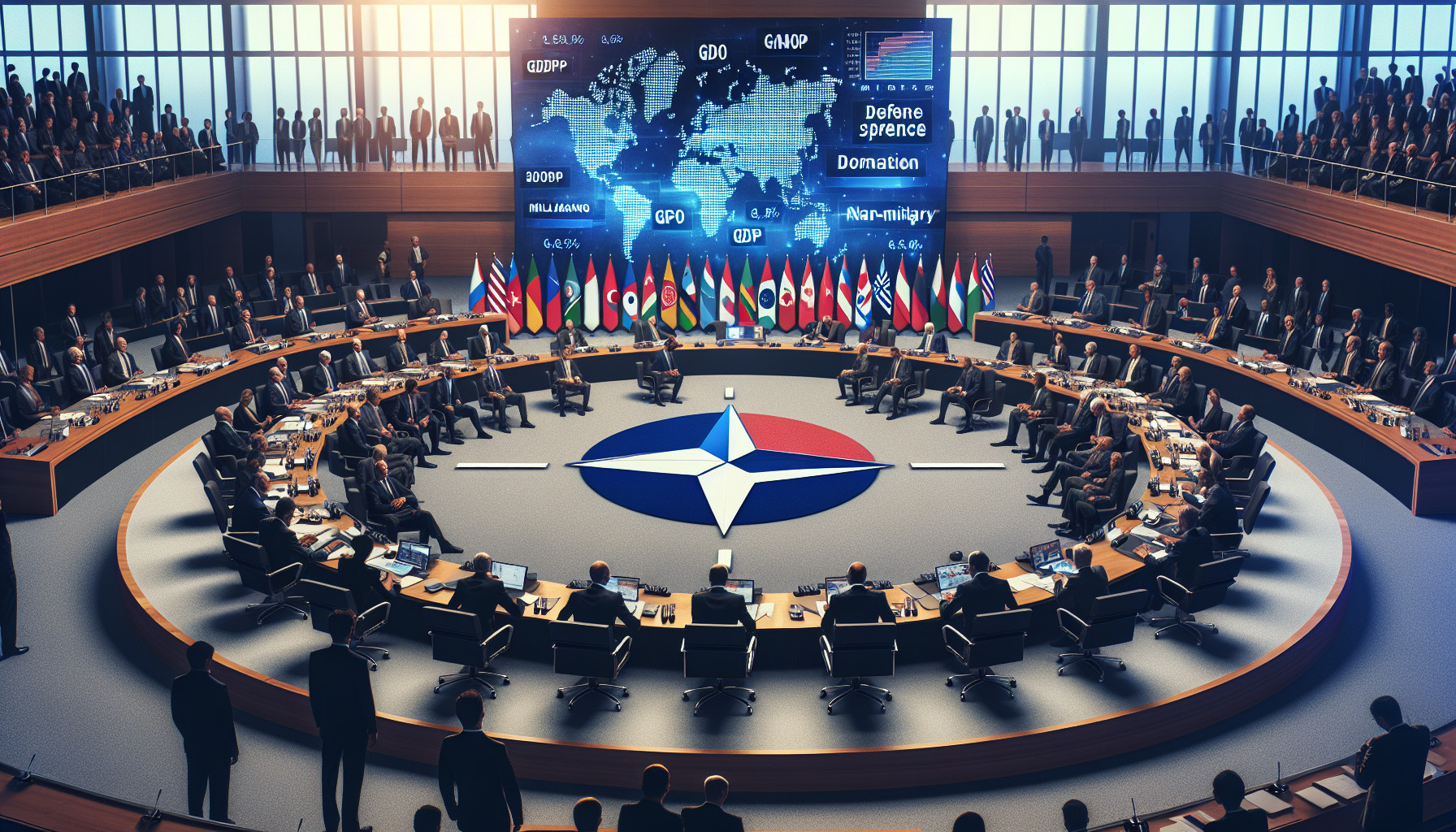
NATO Considers Broadening Defence Spending Definition Ahead of Summit
As NATO approaches a potential new spending target of 5% of GDP, member states are exploring a broader definition of what constitutes defence spending.
BRUSSELS – NATO allies are in discussions to establish a new defence spending target, potentially increasing the benchmark to 5% of GDP. This proposed target aligns with US Secretary of State Marco Rubio's recent call during his visit to Brussels, which has garnered the support of NATO Secretary-General Mark Rutte.
This figure represents a significant increase from NATO's existing mandatory target of 2%, which has not been met by one-third of its member countries.
While NATO does not impose penalties on countries that fail to meet spending thresholds, concerns over the United States reassessing its involvement in the alliance have prompted European nations to reconsider their financial commitments.
Amid calls for increased defence spending ahead of the NATO summit scheduled for June in The Hague, European capitals are looking at innovative ways to define defence expenditures to avoid drastic measures such as cutting pensions or raising taxes.
This approach comes in response to the reported €307 billion gap in defence spending between the United States and its European and Canadian allies.
In the initial round of talks in Brussels this month, discussions have emerged regarding a revision of what qualifies as 'defence' spending.
Under the current framework, NATO's assessment of member nations' expenditures includes costs related to military equipment purchases, infrastructure development, overseas operations, soldiers' salaries, and pensions.
However, it currently excludes aspects such as military aid to Ukraine, the adaptation of civilian infrastructure for military purposes, and the protection of critical infrastructure.
The existing formula tends to favour nations that significantly increase military procurement, such as Poland and the United States, where the costs of troop salaries and pensions elevate overall spending figures.
However, there is growing demand among allies for a reassessment of these financial calculations to better reflect contemporary security needs.
Secretary-General Rutte has proposed boosting traditional defence spending to 3.5% while introducing an additional 1.5% for broader security-related expenditures, culminating in the collective goal of 5%.
Swedish Prime Minister Ulf Kristersson has indicated that a similar proposal has been contemplated within his administration as well.
Such a redefinition of defence spending could recognize the contributions of various sectors, including technological advancements, towards citizen safety—a viewpoint supported by several diplomats involved in ongoing discussions.
Historically, NATO's wealthier nations, particularly Germany and France, have emphasized the importance of 'quality' spending rather than merely increasing financial contributions.
Under the new proposal led by Rutte, these nations would be required to balance both aspects.
Germany, for instance, has significantly invested in military hardware in a bid to meet and exceed the 2% target but continues to focus on selective 'quality' investments that enhance military mobility through infrastructure improvements.
The proposed changes aim to facilitate a more equitable distribution of responsibilities across NATO member states, potentially allowing contributions towards supporting Ukraine and reducing reliance on Russian energy to be counted towards the new spending target.
This shift could enable 13 allies to surpass 4% in defence spending.
However, it is anticipated that Germany and France may remain below this threshold under the new calculations.
Achieving the proposed 5% target would align NATO spending more closely with the military expenditures of Russia and China, with the respective nations allocating approximately 6.7% and 7.2% of their GDPs to defence in 2023.
Negotiations surrounding this potential increase in spending will likely focus not only on the financial figures involved but also the timeline for implementation, with diplomatic sources emphasizing the importance of a balanced approach to avoid straining national budgets.
As NATO prepares for the upcoming summit, there is a concerted effort to prevent a recurrence of tensions similar to those witnessed during the contentious 2018 summit when former President Trump criticized Germany for its military spending levels.
This figure represents a significant increase from NATO's existing mandatory target of 2%, which has not been met by one-third of its member countries.
While NATO does not impose penalties on countries that fail to meet spending thresholds, concerns over the United States reassessing its involvement in the alliance have prompted European nations to reconsider their financial commitments.
Amid calls for increased defence spending ahead of the NATO summit scheduled for June in The Hague, European capitals are looking at innovative ways to define defence expenditures to avoid drastic measures such as cutting pensions or raising taxes.
This approach comes in response to the reported €307 billion gap in defence spending between the United States and its European and Canadian allies.
In the initial round of talks in Brussels this month, discussions have emerged regarding a revision of what qualifies as 'defence' spending.
Under the current framework, NATO's assessment of member nations' expenditures includes costs related to military equipment purchases, infrastructure development, overseas operations, soldiers' salaries, and pensions.
However, it currently excludes aspects such as military aid to Ukraine, the adaptation of civilian infrastructure for military purposes, and the protection of critical infrastructure.
The existing formula tends to favour nations that significantly increase military procurement, such as Poland and the United States, where the costs of troop salaries and pensions elevate overall spending figures.
However, there is growing demand among allies for a reassessment of these financial calculations to better reflect contemporary security needs.
Secretary-General Rutte has proposed boosting traditional defence spending to 3.5% while introducing an additional 1.5% for broader security-related expenditures, culminating in the collective goal of 5%.
Swedish Prime Minister Ulf Kristersson has indicated that a similar proposal has been contemplated within his administration as well.
Such a redefinition of defence spending could recognize the contributions of various sectors, including technological advancements, towards citizen safety—a viewpoint supported by several diplomats involved in ongoing discussions.
Historically, NATO's wealthier nations, particularly Germany and France, have emphasized the importance of 'quality' spending rather than merely increasing financial contributions.
Under the new proposal led by Rutte, these nations would be required to balance both aspects.
Germany, for instance, has significantly invested in military hardware in a bid to meet and exceed the 2% target but continues to focus on selective 'quality' investments that enhance military mobility through infrastructure improvements.
The proposed changes aim to facilitate a more equitable distribution of responsibilities across NATO member states, potentially allowing contributions towards supporting Ukraine and reducing reliance on Russian energy to be counted towards the new spending target.
This shift could enable 13 allies to surpass 4% in defence spending.
However, it is anticipated that Germany and France may remain below this threshold under the new calculations.
Achieving the proposed 5% target would align NATO spending more closely with the military expenditures of Russia and China, with the respective nations allocating approximately 6.7% and 7.2% of their GDPs to defence in 2023.
Negotiations surrounding this potential increase in spending will likely focus not only on the financial figures involved but also the timeline for implementation, with diplomatic sources emphasizing the importance of a balanced approach to avoid straining national budgets.
As NATO prepares for the upcoming summit, there is a concerted effort to prevent a recurrence of tensions similar to those witnessed during the contentious 2018 summit when former President Trump criticized Germany for its military spending levels.
AI Disclaimer: An advanced artificial intelligence (AI) system generated the content of this page on its own. This innovative technology conducts extensive research from a variety of reliable sources, performs rigorous fact-checking and verification, cleans up and balances biased or manipulated content, and presents a minimal factual summary that is just enough yet essential for you to function as an informed and educated citizen. Please keep in mind, however, that this system is an evolving technology, and as a result, the article may contain accidental inaccuracies or errors. We urge you to help us improve our site by reporting any inaccuracies you find using the "Contact Us" link at the bottom of this page. Your helpful feedback helps us improve our system and deliver more precise content. When you find an article of interest here, please look for the full and extensive coverage of this topic in traditional news sources, as they are written by professional journalists that we try to support, not replace. We appreciate your understanding and assistance.
